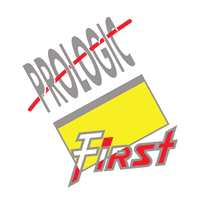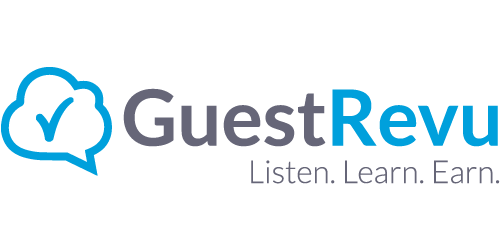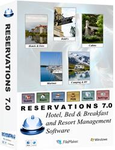Description

Aatithya HMS

Base7booking
Comprehensive Overview: Aatithya HMS vs Base7booking
Here's a comprehensive overview of Aatithya HMS, Base7booking, and MQSYS Hotel, covering their primary functions, target markets, market share, user base, and key differentiating factors:
Aatithya HMS
a) Primary Functions and Target Markets:
- Functions: Aatithya HMS (Hotel Management System) is a comprehensive hospitality management software designed to handle various aspects of hotel operations. It includes modules for front desk management, reservations, billing and invoicing, housekeeping, inventory management, and customer relationship management. The solution also supports integrations with other third-party applications and offers reporting and analytics tools to enhance operational insights.
- Target Markets: The primary target market for Aatithya HMS includes small to mid-sized hotels, guesthouses, and resorts. The system is popular in emerging markets where cost-effective, easy-to-deploy solutions are in demand.
b) Market Share and User Base:
- Aatithya HMS is commonly used in India and other regions where the hospitality industry is burgeoning. While it might not hold substantial market share on a global scale, it is a popular choice in local markets due to its affordability and customization options.
c) Key Differentiating Factors:
- Affordability: One of the main advantages of Aatithya HMS is its cost-effectiveness, making it accessible for smaller establishments.
- Local Market Focus: The system is tailored to meet the specific needs of hotels in emerging markets, providing localized support and features.
Base7booking
a) Primary Functions and Target Markets:
- Functions: Base7booking is a cloud-based hotel management system offering features like property management, channel management, booking engine, invoicing, and reporting tools. Its focus is on providing a seamless integration of operations that connects all departments and simplifies management tasks.
- Target Markets: Base7booking targets small to mid-sized hospitality businesses, including boutique hotels, hostels, and small hotel chains. Its user-friendly design appeals to hoteliers looking for a straightforward, online solution.
b) Market Share and User Base:
- Base7booking enjoys a significant presence in Europe and is expanding its reach globally. As a part of the broader hospitality technology suite by trivago, it benefits from a robust user base and strong brand association, offering more international reach than some other competitors.
c) Key Differentiating Factors:
- Integration with trivago: Being part of a well-known global brand like trivago gives Base7booking a competitive edge in terms of visibility and trust.
- Cloud-Based: Its cloud-based nature offers scalability and remote accessibility, crucial for modern hotel management.
MQSYS Hotel
a) Primary Functions and Target Markets:
- Functions: MQSYS Hotel management software offers functionalities such as front desk operations, reservation management, point of sale, housekeeping management, and customer relationship management. This solution emphasizes streamlined operations and efficiency.
- Target Markets: MQSYS targets small to medium-sized hotels and resorts, focusing largely on properties that require a robust, all-in-one solution with less emphasis on customization.
b) Market Share and User Base:
- MQSYS Hotel is known in specific regions, particularly where integrated management solutions are valued. It might not have the international footprint of some larger players but maintains a solid user base within its focused markets.
c) Key Differentiating Factors:
- Comprehensive Feature Set: MQSYS provides a wide range of built-in features and modules that allow hoteliers to manage various aspects of their property without needing additional third-party tools.
- Focus on Efficiency: The platform is designed to streamline operations, reducing the need for extensive training or complex setups.
Comparative Summary
When comparing Aatithya HMS, Base7booking, and MQSYS Hotel, several factors come into play, including market presence, target audience focus, and unique features. Aatithya HMS appeals to emerging markets with cost-effective solutions, Base7booking leverages its integration with a global brand and offers cloud-based advantages, whereas MQSYS focuses on providing a comprehensive, efficient feature set for straightforward property management.
While direct market share and user base statistics are often proprietary or not publicly detailed, the general perception can be gauged by the regions where these solutions are most popular and their alignment with specific market needs. Each product offers distinct advantages, and the best choice often depends on the specific requirements and budgets of the target hotel establishment.
Contact Info

Year founded :
Not Available
Not Available
Not Available
Not Available
Not Available

Year founded :
2012
+41 21 784 28 53
Not Available
Switzerland
http://www.linkedin.com/company/base7booking
Feature Similarity Breakdown: Aatithya HMS, Base7booking
When comparing Aatithya HMS, Base7booking, and MQSYS Hotel Management Systems, there are several aspects to consider, including common core features, user interfaces, and unique selling propositions. Here's a breakdown:
a) Core Features in Common
-
Reservation Management:
- All three systems offer capabilities for managing guest reservations, confirming bookings, and handling cancellations. They support both direct bookings and third-party integrations with online travel agencies (OTAs).
-
Front Desk Operations:
- Each system provides tools for streamlining front desk tasks, such as check-in, check-out, and room allocation. They typically include a dashboard for an overview of current and upcoming reservations.
-
Billing and Invoicing:
- They all feature financial management tools to handle billing and invoicing, payments, and generating financial reports. Integration with various payment gateways is common.
-
Housekeeping Management:
- These solutions include features for managing housekeeping tasks, room status updates, and maintenance workflows to ensure room readiness and cleanliness.
-
Reports and Analytics:
- Comprehensive reporting tools are included in each, offering insights into occupancy rates, revenue, market segmentation, and operational performance.
-
Guest Communication:
- Systems provide SMS or email communication tools for sending confirmations, reminders, and special offers to guests.
b) User Interface Comparison
-
Aatithya HMS:
- Aatithya HMS is known for a straightforward, user-friendly interface that emphasizes functionality over aesthetics. It focuses on ease of use, making it accessible for hotel staff with basic tech skills.
-
Base7booking:
- The user interface of Base7booking is often praised for its modern design and intuitive navigation. It offers a more visually appealing experience and takes a cloud-first approach with responsive design elements suitable for mobile use.
-
MQSYS Hotel:
- MQSYS offers a traditional interface with a focus on operational efficiency. While it might not be as visually modern as Base7booking, it is designed to be functional and robust, appealing to users who prioritize detailed operational features over design.
c) Unique Features
-
Aatithya HMS:
- Aatithya HMS might offer deeper integration with local market needs, especially in regions where it is more commonly used, such as India. It may have specific features catering to local taxation and compliance requirements.
-
Base7booking:
- Base7booking stands out with its strong channel management capabilities, integrating seamlessly with a wide array of OTAs and travel agencies. It also offers a highly customizable online booking engine for hoteliers who want greater control over their direct booking experiences.
-
MQSYS Hotel:
- MQSYS might have unique features related to property management across different types of accommodations, such as vacation rentals or serviced apartments. It often includes tools for managing diverse property types in a single platform.
In summary, while Aatithya HMS, Base7booking, and MQSYS Hotel share many core features, they differ in their user interface design and have unique features that can appeal to different segments of the hospitality market. Each product's strengths lie in its specific integration capabilities, ease of use, or adaptability to various accommodation types.
Features

Not Available

Not Available
Best Fit Use Cases: Aatithya HMS, Base7booking
Certainly! Let’s explore the best fit use cases for Aatithya HMS, Base7booking, and MQSYS Hotel, focusing on their ideal business types, scenarios for preference, and industry or company size suitability.
a) Aatithya HMS
Business Types or Projects:
- Small to Mid-sized Hotels: Aatithya HMS is well-suited for independent hotels and small to medium-sized hotel chains looking for comprehensive property management solutions.
- Boutique and Resort Hotels: The platform is ideal for boutique and resort hotels that require specialized features like spa and activity management.
- Budget-Conscious Operations: It can be a cost-effective choice for hotels that need robust features at a competitive price point.
Industry Vertical:
- Primarily targets hospitality businesses, including hotels and resorts within small to medium enterprise (SME) segments.
b) Base7booking
Business Types or Projects:
- Independent Hotels and B&Bs: Base7booking is particularly advantageous for independent hotels, bed and breakfasts, and guesthouses that require simple yet powerful booking management systems.
- Hotels Emphasizing Online Presence: Ideal for establishments that focus heavily on online booking and need integration with various online travel agencies (OTAs).
- Startup Hotels: Easy implementation and use make it suitable for new hotel businesses without extensive technical expertise.
Industry Vertical:
- Base7booking primarily caters to smaller hotels and those within the hospitality industry seeking extensive online booking capabilities.
c) MQSYS Hotel
Business Types or Projects:
- Large Hotel Chains: MQSYS Hotel is well-suited for large hotel operations that require scalable solutions capable of managing extensive properties.
- Hotels Requiring Custom Solutions: Ideal for businesses that need customizable features and integrated modules tailored to specific operational needs.
- Technologically Advanced Properties: Perfect for hotels seeking a high degree of automation and streamlined management across multiple departments.
Industry Vertical:
- It serves larger enterprises in the hospitality sector, including expansive resorts and hotels requiring high scalability and modular management systems.
d) Industry Verticals and Company Sizes
Aatithya HMS:
- SME Focus: Designed for small to mid-sized businesses, primarily within the hospitality sector, valuing comprehensive management solutions at a reasonable cost.
- Vertical Reach: Primarily serves the hotel and resort industry but can extend to similar needs in hospitality-related businesses.
Base7booking:
- Small Business Orientation: Best suited for small, independent operations in the hospitality sector that focus on enhancing their online booking capabilities.
- Vertical Reach: While primarily focused on accommodation providers, its simplicity makes it adaptable across various small hospitality-related enterprises.
MQSYS Hotel:
- Enterprise Level: Targets larger organizations that need sophisticated and customizable property management systems.
- Vertical Reach: Caters to extensive hospitality businesses, such as large hotel chains and resorts, needing advanced features and maximal scalability.
Each of these hotel management systems excels in specific niches and company sizes, making the choice dependent on the unique needs and operational scale of the business in question.
Pricing

Pricing Not Available

Pricing Not Available
Metrics History
Metrics History
Comparing undefined across companies
Conclusion & Final Verdict: Aatithya HMS vs Base7booking
To provide a conclusion and final verdict on Aatithya HMS, Base7booking, and MQSYS Hotel, it's essential to evaluate these hotel management software (HMS) products comprehensively. We will consider factors like features, usability, customer support, pricing, scalability, integration capabilities, and market reputation to determine which offers the best overall value.
Conclusion and Final Verdict
a) Considering all factors, which product offers the best overall value?
- Base7booking emerges as the best overall value, especially for small to medium-sized hotels seeking an affordable, user-friendly, and feature-rich solution. It strikes a balance between cost-effectiveness and extensive functionality, making it appealing for diverse hotel operations without compromising on essential features.
b) Pros and Cons of Choosing Each Product:
-
Aatithya HMS
- Pros:
- Robust feature set tailored for larger hotel chains and multi-property management.
- Customizable modules that cater to various hotel operations.
- Good local support, especially in regions where it is more established.
- Cons:
- May have a steeper learning curve for smaller establishments.
- Pricing might be on the higher side, depending on customizations and scale of use.
- Integration with third-party software may require additional configurations.
- Pros:
-
Base7booking
- Pros:
- Intuitive user interface with easy deployment and onboarding processes.
- Competitive pricing, ideal for small to medium-sized hotels.
- Cloud-based with strong mobile compatibility, allowing remote access and management.
- Cons:
- May lack advanced features required by larger hotel chains.
- Relies heavily on internet stability, which might be a concern in areas with connectivity issues.
- Limited offline capabilities.
- Pros:
-
MQSYS Hotel
- Pros:
- Comprehensive accounting and reporting features.
- Good balance of core hotel management functions suitable for various hotel sizes.
- Solid customer support with a focus on personalized service.
- Cons:
- User interface may appear outdated compared to other contemporary options.
- Limited third-party integration potential compared to Base7booking.
- Could have higher upfront costs for on-premise solutions.
- Pros:
c) Specific Recommendations for Users Trying to Decide:
-
Choose Aatithya HMS if you:
- Are managing a larger hotel or a group of properties that require versatile and scalable solutions.
- Need extensive customization and a robust array of features for multi-faceted operations.
- Value strong regional support, especially in areas where Aatithya has a dedicated presence.
-
Choose Base7booking if you:
- Manage a small to medium-sized hotel or property that benefits from cloud-based accessibility.
- Seek an affordable, user-friendly system that does not compromise on essential hotel management features.
- Prefer a quick setup and integration with existing systems without significant IT overhead.
-
Choose MQSYS Hotel if you:
- Require a strong focus on financial management and detailed reporting capabilities.
- Operate a hotel of any size but prioritize customer support and personalized assistance.
- Can invest in a solution where integration limitations and interface updates are not deal-breakers.
Ultimately, the best choice depends on the specific needs, scale, and operational priorities of your hotel. Evaluate the long-term benefits and how a solution aligns with your strategic goals when making your decision.
Add to compare
Add similar companies




